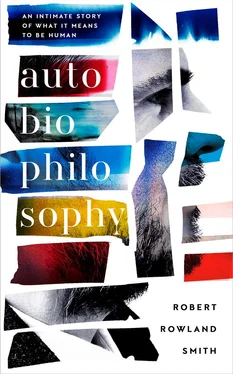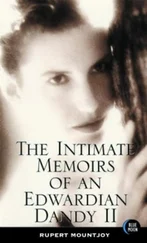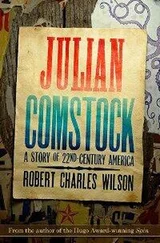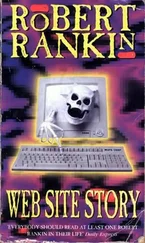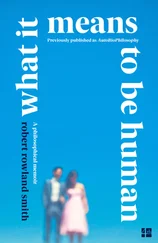The plan backfired. From his exile Colin wrote to Patricia, imploring her to join him. He enclosed a ticket for the Atlantic sea crossing. The letter landed on the doormat of a terraced house in Bell Hill, Northfield, one of Birmingham’s less well-to-do districts. Patricia opened it, made up her mind and set sail. Some months later, at a United Reformed church in Hamilton, Ontario, in a ceremony attended by no more than a handful of well-wishers, they married.
Colin and Patricia might have settled in Canada for life, but a combination of factors drew them back to England. Here my mother was grudgingly accepted and subsequently patronised by her in-laws. The newlyweds set up home in south Croydon, then a still desirable suburb of London. Colin began commuting to the family business’ head office on Tooley Street, opposite London Bridge station. Patricia gave birth to three children, two girls and one boy. She sent me to Dulwich College.
My two sisters were privately educated also. The combined fees can’t have been cheap, but the business was doing well and paying Colin a tidy salary. In 1970 the family moved to a much-extended house with a large garden on a private road further into the suburbs. I had a pine tree outside my bedroom window. Colin bought himself Jaguars, Daimler Double Sixes and BMW 7 Series. For Patricia there was a gold Ford Escort, then a cherry red Opel Manta. The pinnacle was a white two-seater Triumph Spitfire with detachable roof. I would beg her to collect me from school in it. My parents shopped for clothes on Bond Street. One year we went on holiday to Chewton Glen in the New Forest, then the UK’s fanciest hotel.
Yet by the end of that decade a serpent had slithered in. The economy was tanking. The family business was running out of the steam that had powered it since its heyday in the late 1960s. A major factor had been the death of ‘Uncle Bob’. He had been the company’s driving force. Robert Rowland Smith – after whom I was named – was my grandfather Rowland’s brother, and my father’s uncle. Tall, talented and magnetic, Uncle Bob was a legend. With no children of his own, he invested his energies not only in the firm but also in his extended family. So whilst he was happy to splurge on himself – a mansion in St John’s Wood, a Rolls Royce – it was he who had bought Colin and Patricia that first house in south Croydon. What with his passing and the weather in the market turning squally, the business began to founder.
From Colin’s perspective, the squeeze on company revenues wasn’t the only challenge. Without Uncle Bob’s mediating influence, Colin found himself working directly to a father whose modus operandi with his son was criticism. ‘Useless’ was his put-down of choice. Colin was conscious that his father had gone on to have a second family. The youngest of four among that second batch of children was another son, also named Rowland. This new Rowland was about fifteen years my father’s junior and an incipient rival. My father was jealous not just in the way that any brother might be jealous of a half-brother, but also because Rowland – known as Rowley – was taking his own first steps in the family business.
There was a third man for Colin to worry about. This was David Cooke. As is obvious from his surname, Mr Cooke wasn’t part of the family. He was an outsider. Like the owners of many family businesses, I suppose, the proprietors of Rowland Smith & Son Ltd. were aware that family ties could be a liability as well as an asset. They saw the value in an external perspective. Besides, David Cooke came with a reputation as a marketing genius. Before long, Colin perceived his father to be favouring the interloper over him, just as he had suspected his father of transferring his favour to young Rowley. Colin might have been made a director of the company, but psychologically he found himself twice displaced.
Meanwhile, in his thirties, Colin had been diagnosed with MS. He would complain of pins and needles, and of a recurrent ache down the left side of his body, starting in his shoulder. He acquired a slight limp. Mercifully, the disease stabilised at a low level, barely impinging on his capacity to function. Until, that is, the storm clouds that had been gathering over the business finally broke. The money began running out and desperate measures had to be taken. As the big boss, my grandfather decided on cuts. Having tallied up the golden salaries paid to the directors, particularly to my father and David Cooke, he chose to delete one. He sacked his son.
That was in 1979, when Colin was forty-three. He made some half-hearted efforts to set up a marketing enterprise. But, having been given a house and a job and a salary just by virtue of belonging to the Rowland Smith clan, he couldn’t muster the initiative to make anything happen. Perhaps he had also internalised his father’s verdict on his uselessness. He never properly worked again. He sold the big house and gave himself up to his disease.
His eyes were one of the first things to go. He developed a squint and had to wear an eye patch. He had trouble forming sentences. One day he lost control of the accelerator pedal on the Citroën to which he had downgraded. He rammed the vehicle in front, causing a minor accident. With great reluctance, he agreed not to drive again. The limp that had been with him since his thirties became unignorable. The staircase at home had become an abyss into which he risked tumbling from the top. Before long, the walking stick was traded for a wheelchair. Colin would trundle this contraption around the downstairs of the gingerbread cottage he now lived in with Patricia, smashing against the door jambs until they were splintery and raw. By the late 1990s he would fall down regularly getting in and out of it, and my small-framed mother was losing the strength to haul him up again. It was then that she approached the British Home and Hospital for Incurables.
Man’s character is his fate
Colin’s story shows just how singular was his fate. In its details it belongs to nobody else. That is what makes him different – different even from me, his son. The truth is that, having witnessed the onset of his MS, which terrifies me, I’m glad of it. For all the compassion I feel towards him, that his fate differs from mine is something for which I can only be thankful.
Maybe it would be nobler if I felt the urge to take on his disease in order to spare him. That would be a grand filial sacrifice. It is what sacrifice is, at heart – the loving instinct to take over somebody else’s fate, to bear their cross. But that is a fantasy, and in any case doing so is impossible. We can never really stand in for anybody else. Even in the extreme case of offering up our own life to save another’s, it is still our own death that we will die, not theirs. We can’t actually spare them, we can merely buy them some time. What’s more, sacrifice seems to flow more appropriately in the other direction. If anything, parents sacrifice themselves for their children, not the other way round, at least in the West. They cede to the flow of time, giving priority to newer life over older. Incurable is incurable, as the Victorians said.
Wrapped up inside fate is another element that makes family members other to us. It was identified by the Greek philosopher Heraclitus. In a precious fragment of text from the ancient world, Heraclitus is quoted as saying that ‘man’s character is his fate’. Who we are, as much as the action of any external influence, determines what will happen to us. To change our fate, therefore, requires changing who we are. But changing who we are is never easy. The drive to carry on being ourselves counts among the most powerful forces in the universe, rivalling gravity. After all, our character is what stops us from becoming other people. As if it were a repelling magnet, our character keeps others at arm’s length, insisting on its own space.
Читать дальше
